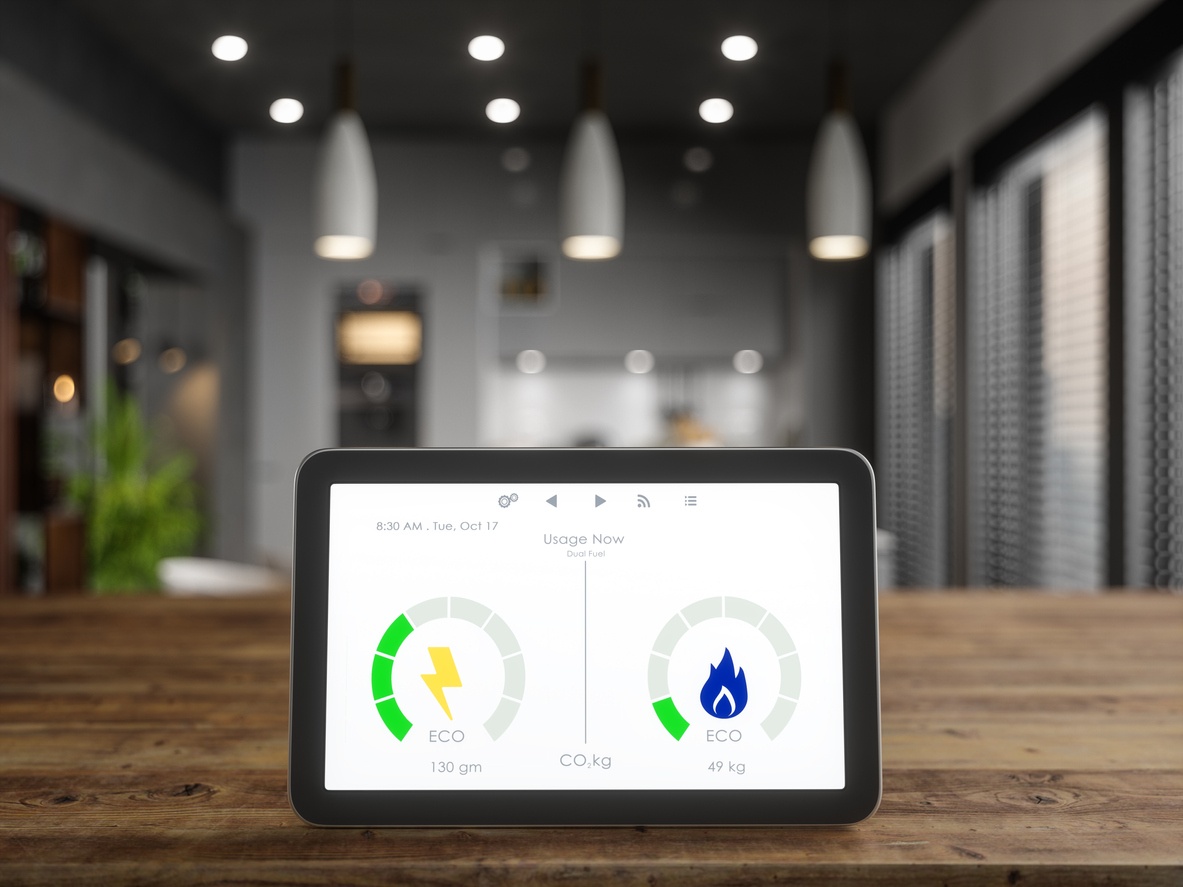How to Reduce Your Home’s Energy Consumption (And Bill!)

Household appliances make our lives simpler, more convenient, and more comfortable in countless ways. Unfortunately, they also use up plenty of electricity, which becomes painfully apparent when you get the electric bill at the end of the month. According to the U.S. Energy Information Administration (EIA), the average cost of electricity for U.S. residences is $117.65 per month. That adds up to more than $1,400 a year spent on electricity. Adjusting your energy consumption can cut as much as 25% off your electric bill. Here are some effective power- and money-saving strategies you can try:
Cooling and heating
Home heating and cooling systems are the biggest contributors to energy bills in the average home. Check out these cost-cutting tips for HVAC systems:
Check the seals on your doors, windows, and appliances
Keep cold air where it belongs by making sure your fridge and freezer are sealed. Do the same for your doors and windows. Defective seals let cool air out, causing your appliances to work harder and increasing your electric consumption in the process.
Repair leaky ductwork
Repair leaks in your heating and ventilation systems and air conditioning ducts. This improves your heating and cooling systems’ performance and reduces the amount of energy they consume.
Adjust the thermostat by a few degrees
Reduce the temperature by 10° to 15° when you are sleeping or away from home. Doing this for eight hours a day will save you as much as 10% on heating and cooling costs every year. You could even install a programmable thermostat to adjust the temperature automatically.
Adjust freezer and refrigerator temperature
Set your freezer’s temperature to 0° to 5° and your refrigerator to 38°. This keeps food fresh and crisp for longer and reduces the amount of work your freezer and refrigerator need to do to maintain the correct temperature.
Water
Water-heating systems are the second-largest power consumers in most households. You can reduce your energy bill considerably by reducing the amount of hot water you use in the dishwasher, shower, and laundry.
Shorten shower time
You can save as much as five gallons of water by shaving two minutes off your shower time. If you regularly use hot water for showering, shorter shower times will reduce your electrical consumption as well.
Don’t wash clothes in hot water unless it is necessary
You don’t always have to wash your clothes in hot water. In most cases, warm or cold water works just fine. Reducing hot water consumption when doing laundry could cut your energy consumption by at least 50% per load.
Change your heater’s temperature
Most water heaters have a default temperature of 140° F. Lowering it to 120° F will save you as much as 10% on water heating costs. You could even place it at the lowest setting if you are going away for an extended period to conserve even more energy.
Inquire for discounted rates
Some service providers offer lower rates at certain times of the day. Scheduling your laundry and other energy-intensive tasks during these times can reduce your electric bill by as much as 5% to 25%.
Lighting and power
Lights and electrical appliances account for at least 11% of your overall energy consumption. Here are some tips on reducing your lighting costs:
Switch to energy-efficient light bulbs
Replace the bulbs in your most-used fixtures with Energy Star-certified compact fluorescent or LED bulbs. This could save you as much as $75 a year on lighting costs.
Install dimmer switches
Dimmers allow you to adjust your lights’ brightness as needed for work or when you want to change the mood. They could also help you conserve energy, which is a definite plus.
Utilize smart power strips
Some electronic devices don’t shut off entirely and instead remain in standby mode. You may not realize it, but appliances on standby consume small amounts of electricity that add up over time. Consider connecting these devices to a ‘smart’ power strip that turns them off when they’re not in use.
Invest in energy-efficient appliances
Always choose energy-efficient appliances whenever possible. Although they are more expensive than standard appliances, they could save you a considerable amount of money in the long run.
Go energy-efficient where it counts. Choose energy-saving models of appliances you use often. These include air-conditioners, dehumidifiers, refrigerators, televisions, water heaters, and washers and dryers.
Create an energy audit
Some utility companies offer energy audits, sometimes for free. These could help you figure out additional ways to reduce energy usage in your home.
These are only some ways by which you could reduce your energy consumption and lower your electric bill. Check out Santa Fe Home Insurance for even more helpful power and money-saving tips!
About Daniels Insurance, Inc.
At Daniels Insurance, Inc., we have a unique understanding of the risks that businesses like yours face on a regular basis. With the backing of our comprehensive coverages and our dedication to customer service and quick claims resolution, your business will be fully protected. For more information, contact us today at (855) 565-7616.
